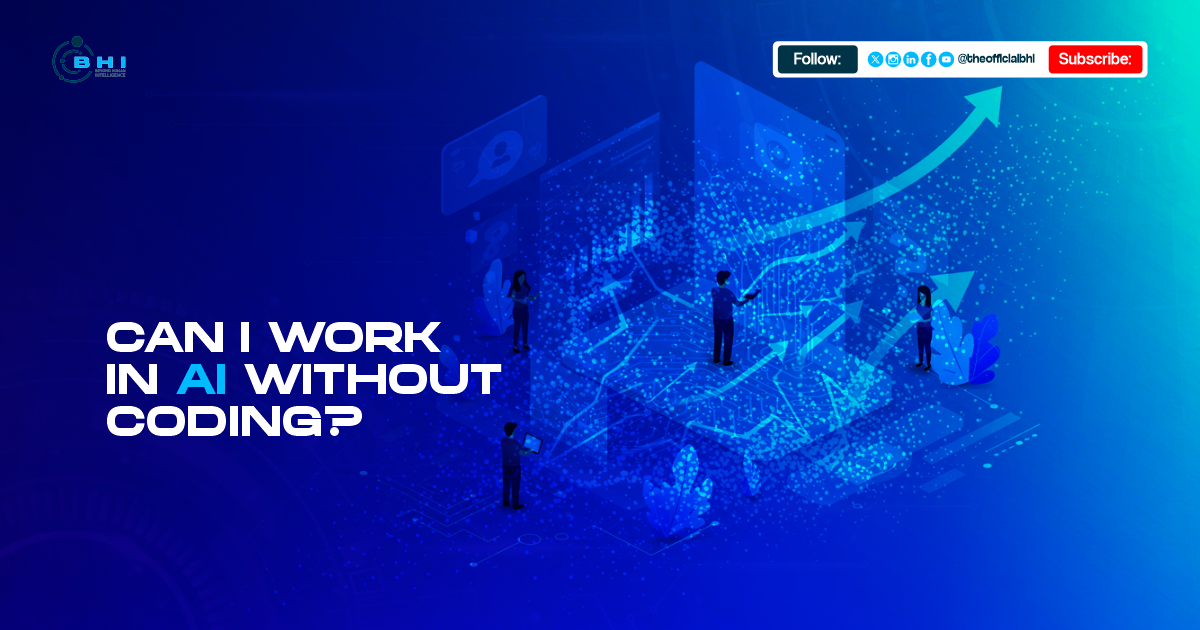Ikeja, Lagos, Nigeria

Introduction
When most people hear “Artificial Intelligence,” they picture complex code, high-level math, or advanced engineering. It sounds intimidating—like something only tech geniuses can do. But here’s the truth: you don’t need to know how to code to work in AI.
Some of the most in-demand roles in AI right now require no programming at all. In this post, we’ll show you how you can break into the world of AI through one of its most essential—and accessible—entry points: data annotation.
Breaking the Myth: AI Is Not Just for Coders
While AI models may be built by engineers, they’re trained by real people—people who label, tag, and structure the data that teaches these models how to think. This process is called data annotation, and it’s what allows AI systems to understand language, images, speech, and more.
And guess what? You don’t need a technical background to do it.
If you have a good eye, basic computer skills, and a willingness to learn, there’s a place for you in the AI ecosystem.
What Is Data Annotation (And Why Is It So Important)?
Data annotation involves adding labels to raw data text, images, audio, or video, so that AI models can make sense of it. You’re basically “teaching” the AI by telling it what things mean.
For example:
- Drawing boxes around objects in an image so a self-driving car knows what to avoid
- Highlighting names, places, or emotions in a sentence to help a chatbot understand tone
- Transcribing voice recordings so voice assistants can respond correctly
- Tagging actions in videos like walking, running, or waving, for smart surveillance systems
Without this kind of annotated data, AI wouldn’t work.
Why It Matters (Especially for Africans)
Most AI today is trained on data from Western countries, but African languages, accents, and cultural contexts are underrepresented. That means we need African annotators who understand the local context, dialects, and realities.
By becoming a data annotator, you’re not just launching a new career; you’re helping build more inclusive, diverse, and relevant AI systems.
Who Can Become a Data Annotator?
The beauty of this role is its accessibility. You don’t need a degree in computer science or years of experience. Data annotation is ideal for:
- Students or fresh graduates
- Stay-at-home parents
- Freelancers
- Career changers
- Anyone curious about the world of AI
What you do need:
- A laptop or smartphone
- Attention to detail
- Basic digital literacy
- A strong willingness to learn
Your No-Code Roadmap Into AI
If you’re wondering where to begin, here’s a simple step-by-step path:
- Understand the basics of AI and machine learning (You’re already doing that by reading this!)
- Learn what data annotation involves, types of tasks, tools, and use cases.
- Get hands-on training with real projects or simulations.
- Practice using free tools like Label Studio, Doccano, or CVAT.
- Build a small portfolio to showcase your skills to potential clients or employers.
Where BHI Comes In
At Beyond Human Intelligence (BHI), we specialise in training everyday people to become professional data annotators. Our beginner-friendly training program is built for you—even if you’ve never worked in tech before.
You’ll get:
- Step-by-step guidance
- Real-world African datasets
- One-on-one mentorship
- Certification to boost your credibility
Whether you’re looking to earn income, gain tech skills, or transition into AI, this is your launchpad.
📣 Ready to Start Your Journey into AI Without Writing a Line of Code?
Our next training cohort is coming soon—but space is limited.
📩 Join the waitlist today and get early access before public registration opens. You’ll also receive free beginner resources while you wait.
